Your applications, search engines and social networks know about you a lot of interesting things that you do not even talk about to your closest friends. To find out exactly what details of your life the Internet stores, BBC journalist Sofia Smith Galer underwent a program called Data Detox and talked about her experience.
When I first read about Data Detox ("Information detox"), I was overwhelmed by doubts. I decided that this program will force me to refuse to participate in the digital life of the society. And since my work requires a constant presence on the web, it would be a professional suicide. However, it turned out that the goal is more to study and streamline our lives on the Internet.
Data Detox was developed by non-profit groups Mozilla and Tactical Technology Collective and is timed to the London performance "Glass Room", in which visitors were invited to see what is happening with their data "behind the scenes." Yes, the authors understand that they can not return the past, but they urge to be more circumspect in the future.
The authors of the project say: "Our program is designed for half an hour a day or less - and in just eight days you will learn to control your data with simple and understandable operations. We hope to change people's views on the collection of information, which now often happens without their knowledge. "
I was intrigued and decided to try.
Day 1. First discoveries

On the first day, you are, in fact, frightened, showing how much information about you is available in the search engines. I am a representative of the younger generation and an online journalist, so much of my life is online, which I have long resigned to. If you clear the search history, you can google from the position of a stranger and see which pictures and links are associated with your name. I was pleased with the results, but mainly because I posted almost all of this content on the Web with my own hand.
In general, everything was fine until I started experimenting with alternative search engines. DuckDuckGo is a non-commercial site, that is, unlike Google, it is not interested in analyzing the history of searches and providing you with personalized results (and therefore, if you use it, your "digital footprint" is somewhat reduced). Nevertheless, he uses other search engines to display hints (in particular Yahoo, Bing and Yandex). Interestingly, Google tried to finish my request as "Sophia Smith Galer BBC", and DuckDuckGo suggested "Sophia Smith Galer liberal".
You can guess who and why asked such a request. Maybe it was my employer, maybe the reader of one of my articles, or maybe the participant of the persecution on Reddit, the victim of which I somehow became - who knows? But the understanding of how completely outsiders can affect our digital image, completely disarms.
Day 2. What does Google know about you
Data Detox innocently asks: "Is Google your best friend?". Listen, I know that I spend a lot of time on the web, but I have my own life, thanks for caring.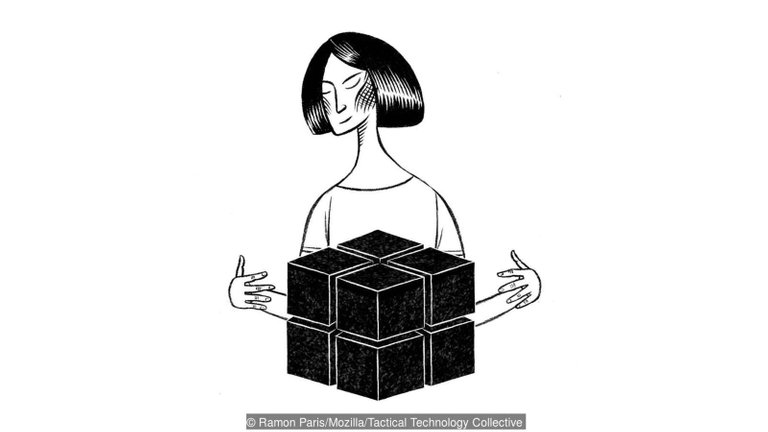
However, it turns out, Google is really my best friend. Detox asks me what I'm sharing with the search engine, and then I wonder if I'd start telling this to my best friend. I use Chrome, Docs, Gmail, Translate, YouTube and Maps, which means - breathe in deeper - I tell Google where I am from, what device I go to the Internet, what I'm interested in, what I'm working on, what I'm sending by e-mail different people, what doctor and what bank I go to, what phone operator I use, what words from other languages I do not know, what amusements I feel shy about, what I learn, what music I like to listen to, where I went in the past and where I go now. My best friend knows a lot about me, but certainly not as much as Google.
And I do not have a phone on Android yet - and if you have, then all your voice requests are also filed, so Google knows how your voice sounds. However, any records that Google stores about you can be deleted.
Day 3. What Facebook knows about you
This day was quite interesting, because I realized that I had completely stopped writing on Facebook. Last year, the company began to worry about the so-called "collapse of the context" - the point is that when I and my friends were 12 years old, we dumped absolutely everything on Facebook, and now I put photos in Instagram, and links to news or observations get on Twitter.
As a result, many of the profile on Facebook consists of some shameful teenage manifestations. Maybe it's time to clean this garbage and ask your friends to remove your otzyznye pictures?
Day 4. Search and surfing the Internet
Each time you press "Facebook" on Facebook and Twitter, you give information about visited pages and your IP address to third-party companies. And these are only visible tracking mechanisms - there are still a lot of invisible trackers that accompany each of our steps. In this case, if the company has a lot of trackers on different sites, it will form a fairly complete picture of your wanderings on the Web.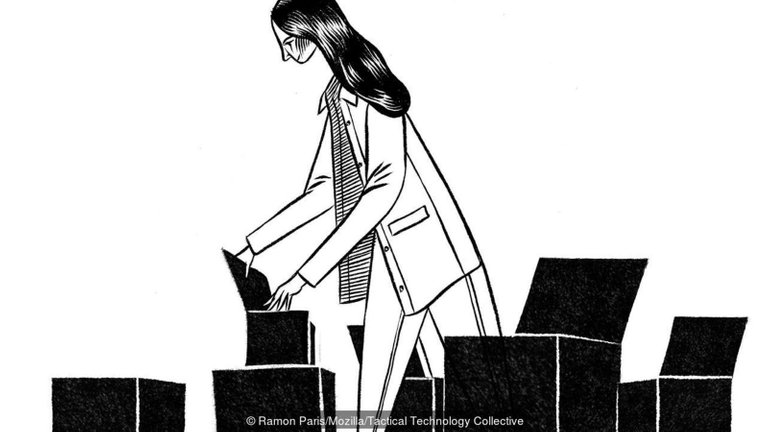
Privacy settings do not protect our secrets by default, so Detox advises them to change or use a special mode in which the history of search queries is not written - in Safari this is called "Private access", and in Chrome "Incognito mode". You can also install one of the extensions that prevent spying. In addition, it should be borne in mind that when you go to sites where the address is prefixed with https, rather than http, it means that your connection to this site is encrypted.
However, Detox warns: "Incognito mode prevents trackers from monitoring you, but does not provide anonymity!"
Day 5. Connecting
Detox recalls: "Your phone every second broadcasts to any open channel:" I'm here! I'm here!". In addition, he is trying to connect to everything he can. "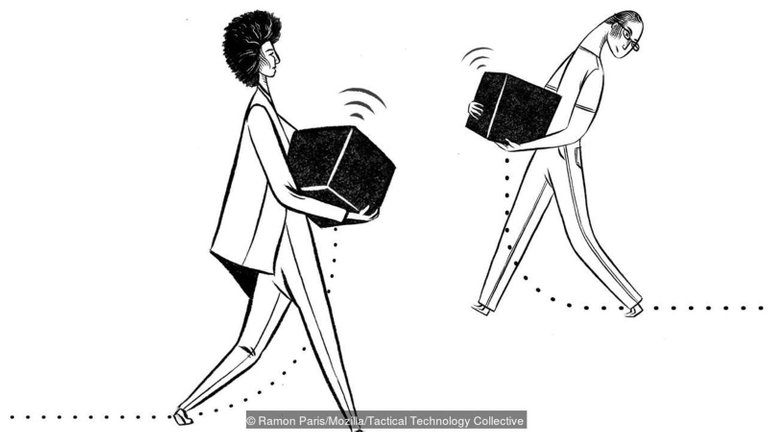
Our phones are constantly looking for Wi-Fi and Bluetooth-networks, and if you called your phone "Masha's phone," can you imagine how many people can find out what your name is? Phone is better to rename.
Another problem is location data. It is recommended to turn off Wi-Fi and Bluetooth when you do not need them, and minimize the cases when you allow applications or sites to receive data about your whereabouts. The information provided by the location services of your phone is a tasty piece, as it allows you to understand where you live and work, and what kind of lifestyle you lead.
Imagine the possible consequences. In addition, it is important to understand that any Wi-Fi network to which you connect sees a list of networks you have connected to in the past, most of which are called perfectly speaking names. For example, your current employer could theoretically learn that you secretly went to a competitor for an interview. And what could your young man or girl know?
Day 6. Cleaning
A big contribution to the increase of our digital footprint is made by mobile applications. If you have more than forty, you are at great risk, so it's best to at least delete unnecessary ones.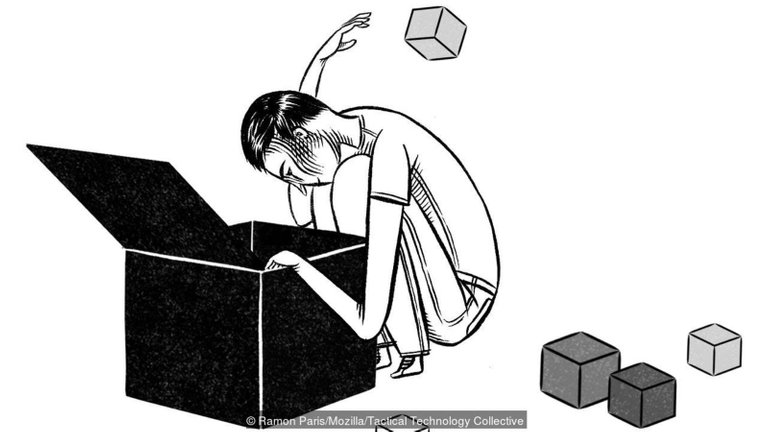
However, every person has the applications that he needs, and for me these are social networks. But you need to remember that they also have privacy settings, and there is something to configure. In addition, maybe some applications can be replaced with alternatives that will not collect your data. Detox, in particular, cites Skype as an example. There are other options for chat rooms, including Jitsi Meet and Signal - they can also be corresponded, but they are non-commercial programs, free and open source.
Day 7. How the Internet sees you
Facebook and Google generate a special dossier on each user - in the future it will indicate which advertisement they will show. And this dossier can be viewed.
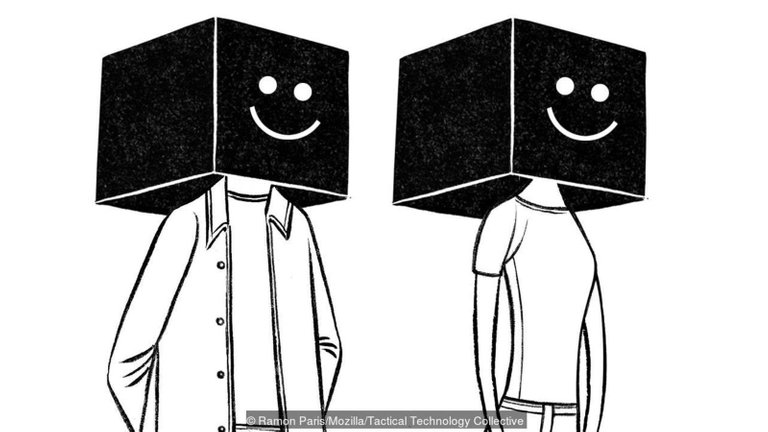
In my case, it turned out that Google knows only my age. Facebook also knows me worse than I suspected: somehow I turned out to be a medical worker involved in motor racing and playing shooting games. Nevertheless, he knows about all my devices, and I believe, makes a conclusion from this that I am an enthusiastic buyer of new technology and a researcher of new services.
This profile helps Facebook to select advertising for you, so when you celebrate the next stage of your life on the social network - a new partner, a new child - you are telling that your consumer habits will change soon.
But the matter is, unfortunately, not limited - profiling allows you to assess who you will vote for or how you relate to different categories of citizens. For example, Facebook allowed advertisers to show ads to anti-Semites or exclude users from campaign coverage based on their race. In 2016, automobile insurance company Admiral developed an application predicting the style of driving a person by the number of exclamation marks used by him.
Perhaps the next time you are offered to read the next license agreement and press "I agree," you will think twice.
Day 8. Creating a new "I"
If you do not want your digital footprint to show up again, Detox offers you to think about it every week and every month. Provide reminders of changing passwords, clearing your browsing history, and evaluating the use of social networks. It is also proposed to use different e-mail accounts for different fields of activity. In addition, the authors provide a list of alternative applications for various purposes.
If you also want to try Data Detox, follow the link. The creators of Detox write:
"Try to attract the family and friends to the program, because in many ways depends on them and your" digital imprint. " Whenever they mark or mention you, or post on the Web any information about you, it adds details to your image - and regardless of your own behavior. "
- Thank you for your time and attention!
Don't forget to vote for this post if you liked it, follow me for me, and leave a comment to let me know what you think!

There comes a time when the mind takes a higher plane of knowledge but can never prove how it got there.
- Albert Einstein
interesting @wise-old-man ))
Congratulations @ghmboyan! You have completed some achievement on Steemit and have been rewarded with new badge(s) :
Click on any badge to view your own Board of Honor on SteemitBoard.
For more information about SteemitBoard, click here
If you no longer want to receive notifications, reply to this comment with the word
STOPrealy interesting post @ghmboyan
Great post! It is kinda of frightening...but it's probably also a relief to get confident about all the things the internet - Google, Facebook, Microsoft - and others don't know about you! :)